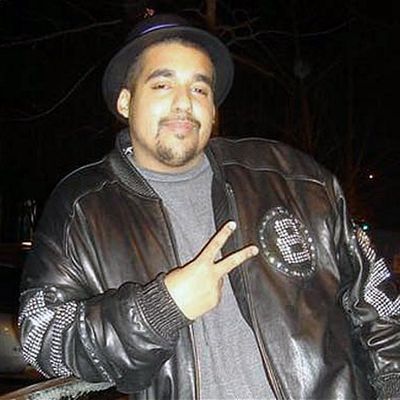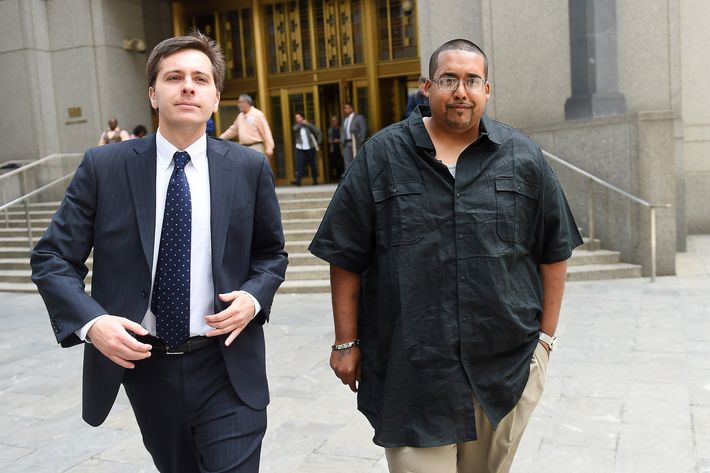
This morning in federal court, Judge Loretta Preska revealed the rewards of working for Team America, to borrow the FBI’s phrase for its network of informants and collaborators. Hector Monsegur, who as Sabu was perhaps the most famous hactivist in the world, faced more than 20 years in prison for his role as a leader of the cyberhacking collective Anonymous. But Monsegur told the judge, “I’m not the same person I was three years ago.” The judge apparently agreed, sentencing him only to the seven months he’d already served for a bail violation.
Why so lenient? Monsegur, of course, for the past three years had been an FBI informant extraordinaire — perhaps the most effective ever against hacking crimes.

For Sabu, his dozen-year career as an online hacker had been a glorious run. Offline, he was an unemployed cyber security consultant who eked out a living as a small-time thief. His mother had abandoned him. His father was a drug dealer. He lived in his grandmother’s apartment in the Jacob Riis projects on the Lower East Side (see New York’s 2012 feature story about him). But online he was Sabu, a bullying, blustery celebrity who sewed mayhem, leading cyberattacks on foreign governments, the FBI, and multi-national corporations, and inflicting millions of dollars of damage, according to the government.
Then, on June 7, 2011, the FBI showed up at Sabu’s doorstep in the projects, and the bullying ended. Sabu, who’d boasted online that he’d be a martyr for the cause, immediately decided to cooperate. To the FBI, which was struggling to understand the online criminal world, Sabu was a tutor, delivering a master class in the history, operations, and organization of Anonymous, and its most dangerous offshoot, Lulzsec, of which he was a leader. Sabu acted as almost a fellow FBI agent, attending all-night strategy sessions and participating in undercover operations as an undercover agent. In this role, Sabu was once again an arrogant, cocksure character, all but inciting his former comrades to push ahead with their illegal exploits as the FBI duly monitored.
In May 2012, Sabu violated the terms of his agreement with the government. Gabriella Coleman, a professor at McGill University who’s studied Anonymous for the past ten years, said that he participated in an unauthorized online chat with hackers. “The chat was leaked,” she said. The government sent him to prison for seven months. He seems to have learned his lesson from the experience and hasn’t been in trouble again since his release in December.
All told, the authorities said that Monsegur has helped catch eight of his former Anonymous comrades — including the ultraskilled Jeremy Hammond, who is now serving a ten-year prison sentence — and helped disrupt 300 computer hacks, often at some risk to himself.
As Sabu, Monsegur sported a goatee and earrings, symbols of his street cred. In court today, he was clean-shaven, nervous, and thankful. The one-time internet terror had an implicit communique for his former colleagues.
“This sends a signal to future informants,” said Coleman, who knew Monsegur when he was Sabu. “Cooperate and you will be treated well.”





























